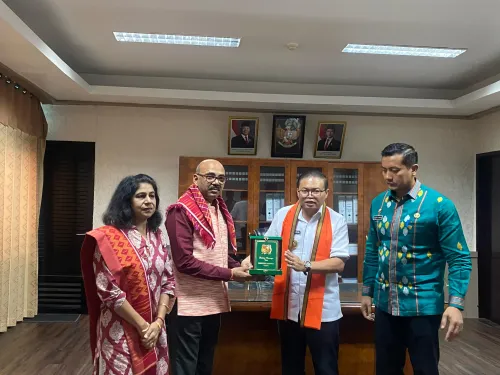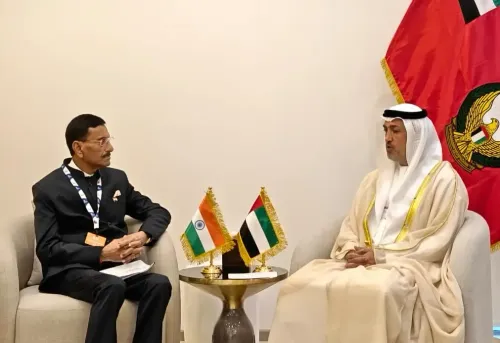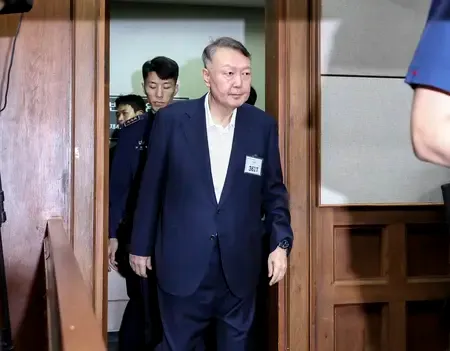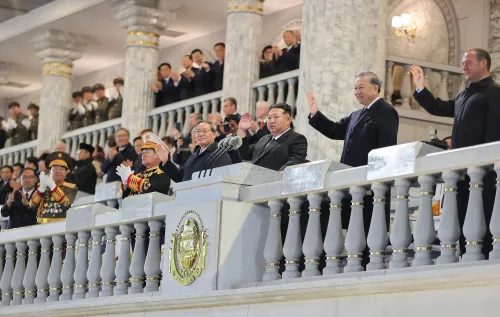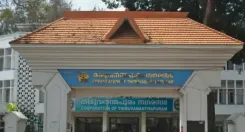Is India’s Trade Stance with the U.S. 'Good and Disciplined'?

Synopsis
Key Takeaways
- India's trade approach is seen as disciplined and well-structured.
- The U.S. Trade Representative acknowledges India's pragmatic stance in negotiations.
- Concerns arise over the potential impact of U.S.-China relations on India's strategic interests.
- Heavy tariffs could redirect India's partnerships towards alternatives like Russia and China.
- There is an opportunity for India to step up in the global diplomatic landscape.
Washington, Oct 3 (NationPress) Raymond Vickery, a former US Assistant Secretary of Commerce for trade development, has praised India's cautious strategy amidst the recent tensions with the United States.
In a unique interview with IANS in Washington, Vickery, who serves as a Senior Associate and Chair on India and Emerging Asia Economics at the Center for Strategic and International Studies (CSIS), described India's position as "good and disciplined."
“Credit goes to the policymakers from [Prime Minister] Modi, (External Affairs Minister) Jaishankar, and others for their commendable discipline in communication. Rather than reacting impulsively, they have adopted a well-structured and disciplined approach,” he remarked.
On Tuesday, U.S. Trade Representative Jamieson Greer also characterized India's stance in trade discussions as "pragmatic" and noted that both nations are "working to negotiate a deal."
During a discussion at the Economic Club of New York on Tuesday, Greer emphasized the ongoing negotiations with India.
“The Indian negotiators are being pragmatic. Since the start of this administration, we have been engaged in discussions related to trade. Regarding a 50 percent tariff on India, it's important to note that half of that, 25 percent, is tied to trade-related issues. We are actively seeking to reach an agreement,” he elaborated.
Vickery, who is also a Senior Advisor at Albright Stonebridge Group, pointed out that the last nine months of the Trump administration have negatively impacted bilateral relations.
“In the past eight to nine months, the dynamics of international relations between the U.S. and India have regressed, marking a setback,” he observed.
The former senior commerce department official emphasized the multifaceted India-U.S. engagement in areas like technology, military, health, and energy, but cautioned that Trump’s "transactional approach" could jeopardize cooperation in various sectors.
“If this transactional stance persists, it may hinder the overall engagement between the U.S. and India,” he warned.
Vickery also commented on the Indian Prime Minister’s visit to China in August for the Shanghai Cooperation Organisation (SCO) Summit, indicating New Delhi's search for "alternative partners."
“India is clearly exploring other partnerships, including with Russia, China, and BRICS. The heavy-handed approach of these tariffs drives India towards China, Russia, and other alternatives to the U.S. relationship,” he mentioned.
Commenting on the Trump administration’s unclear stance on its strategy with China, Vickery suggested that while the ambiguity might benefit India in the short term, it poses long-term challenges.
“This situation may temporarily favor India, as both India and China find themselves in similar predicaments. However, in the long run, India faces significant challenges regarding China,” he remarked.
He cautioned that a potential future U.S.-China “grand bargain” could adversely affect India's strategic interests.
“It’s entirely possible that in pursuit of a grand bargain between the U.S. and China, the U.S. may compromise on certain security interests of India, particularly concerning maritime freedoms,” he noted.
However, Vickery expressed hope that New Delhi would seize the chance to fill the "power vacuum" created by the Trump administration's "America First" policy.
“I hope India recognizes the diplomatic vacuum left by this administration and steps up in line with its democratic values, fostering cooperation on economic development and expanding its global role,” he concluded.

